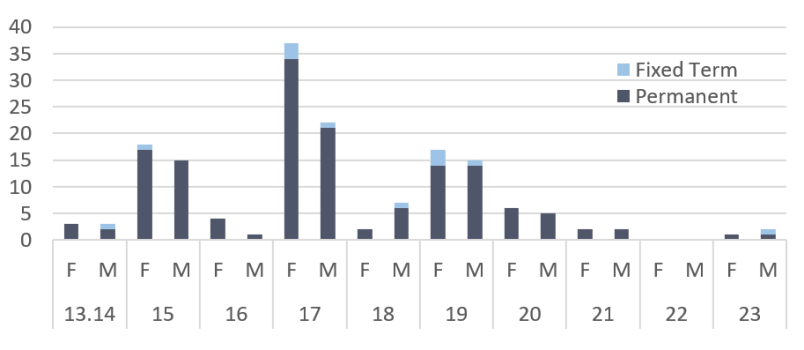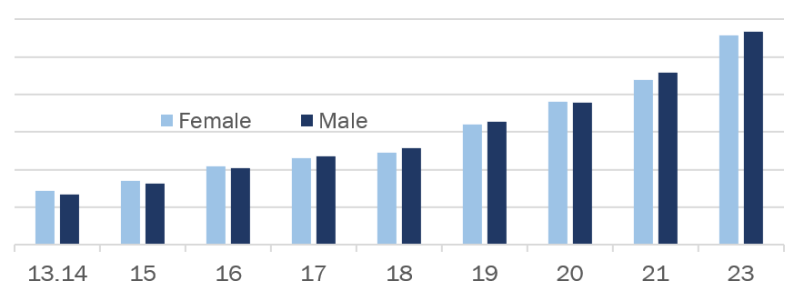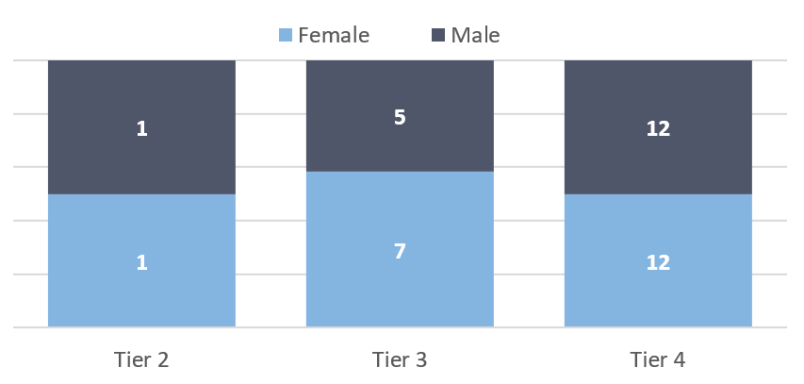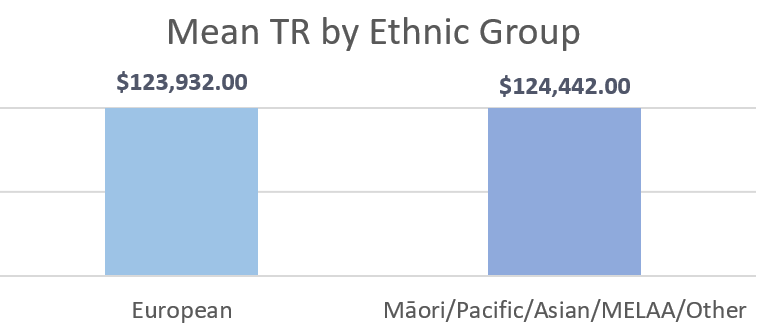Integrating diversity and inclusion is a key component for our organisational success - it helps NEMA improve our services to the government and people of New Zealand, and to attract and retain talented employees.
Formats
Context#
- NEMA is the Government lead for emergency management and is a departmental agency hosted by DPMC.
- Since 2019 when NEMA became a departmental agency we have grown exponentially from 56 staff to having a headcount of 162 staff as at September 2023. 151 perm and 11 fixed-term.
- NEMA’s gender pay gap has decreased by 4.8% within the last year
- GPG June 2022: 9.8%
- GPG June 2023: 5%
- As a public service agency, NEMA values diversity and inclusion and are making intentional actions to make our workforce more reflective of the diversity of Aotearoa New Zealand and the communities we serve.
- NEMA is a small agency where changes in staffing can cause data volatility within grades and across the organisation.
- Key focus areas for NEMA will be increasing the representation of women and ethnic employees in higher pay grades across NEMA through a focus on recruitment, retention and internal progression.
- This is the third year NEMA’s data has been reported separately from DPMC.
What does our data tell us?#
- NEMA’s gender pay gap has improved by 4.8% in the last year reflecting the implementation of the 24/7 MAR function which has increased the number of men in lower grade roles (Grade 15 and 17).
- Women are no longer over-represented in lower paid roles in the organisation and are not under-represented in higher paid roles. This is a significant shift.
- The GPG for new starters in 2022-2023 was 12%. However, separating permanent staff onboarding shows this to be neutral with no bias in starting salaries. The difference was driven by the recruitment of 4 fixed term roles (GPG 16.5)
- NEMA currently has low representation of Māori relative to the communities that we serve (7% versus 16.5% of the NZ population). We also have low representation of Asian people (2% relative to 15.1% in the population) and other ethnic groups.
Note: This is the third year DPMC and NEMA data is reported separately, all data is in Total Remuneration.
NEMA Data Summary as at September 2023#
NEMA Demographics
Structure of NEMA by grade

GPG by employee type
| Employee Type | Mean Total REM | ||
|---|---|---|---|
| Male $ | Female $ | % Gap | |
| Permanent | $129,552.63 | $124,626.89 | 4% |
| Fixed Term | $178,562.30 | $131,320.14 | 26% |
| Total | $132,313.74 | $125,147.48 | 5% |
Men are in roles that on average are in higher grades and paid more than women.
Mean total remuneration by pay grade
(Permanent only)

Pay bands are either positive to women or have a GPG no greater than 3.2%.
Gender balanced leadership

Women occupied 53% of all people leader roles (20 of 38) and 54% of T2 and T3.
In 2022-23 women occupied 41% of people leader roles (12 of 29).
Ethnicity#
As at September 2023 NEMA has 139 European staff and 34 Māori/ Pacific/ Asian/ MELAA/ Other. NEMA continues to focus on expanding our ethnicity footprint with a key area looking at ways to improve our recruitment and retention of ethnically diverse candidates and staff. While the changes we have made to increasing our attraction of ethnically diverse candidates has improved, our data shows that it is not always flowing through to hire. Understanding and addressing this where possible will be a key focus area in 2024.
Candidate Ethnicity – 12 months to September 2023
| Ethnicity Type | Applications | Shortlisted/ Interviewed |
Offered/ Hired |
|---|---|---|---|
| European | 63% | 69% | 84% |
| Māori | 14% | 18% | 7% |
| Asian | 12% | 7% | 2% |
| Pacific Peoples | 3% | 1% | 0% |
| MELAA* | 3% | 2% | 4% |
Average pay by ethnicity

Non-European ethnic groups have low numbers of representation at NEMA, numbers are too small to create robust measures for ethnic pay gaps for all groups. We have calculated a pay gap between European and Māori/ Pacific/ Asian/ MELAA*/ Other which sits at 0.4% a massive improvement from 9.7% in June 2022.
*MELAA: Middle Eastern, Latin American and African.
Our Success Looks Like#
- All of our people have a sense of belonging and feel valued.
- Our workforce is representative of Aotearoa New Zealand and the communities we serve with a focus on Māori, Pacific and women.
- Diversity and remuneration equity across all levels.
- A culturally confident workforce.
Kia Toipoto actions in 2024#
Our work follows the requirements set by Te Kawa Mataaho Public Service Commission for all agencies. In 2024 we are focusing efforts on key areas to make the most difference to gender and ethnic representation and pay gaps. These efforts also align with the feedback from our people through our Kōrero Mai staff survey. This plan gives detail on our ongoing activities in all six Kia Toipoto areas.
| Topic and milestones | 2024 actions |
|---|---|
|
Te whai kanohi i ngā taumata katoa | Leadership and representation By the end of April 2023 agencies/entities have plans and targets to improve gender and ethnic representation in their workforce and leadership. By the end of 2024 the Public Service workforce and leadership are substantially more representative of society. |
Focus for 2024
Ongoing activity
|
|
Te Whakawhanaketanga i te Aramahi | Effective career and leadership development By mid-2023 agencies/entities have career pathways and equitable progression opportunities that support women, Māori, Pacific and ethnic employees to achieve their career aspirations. |
Focus for 2024
Ongoing activity
|
|
Ngā Hua Tōkeke mō te Utu | Equitable pay outcomes By the end of 2022 entities ensure that starting salaries and salaries for the same or similar roles are not influenced by bias. Agencies monitor starting salaries and salaries for the same or similar roles to ensure gender and ethnic pay gaps do not reopen. |
Ongoing activity
|
|
Te Taunoa o te Mahi Pīngore | Flexible-work-by-default By the end of 2024 agencies and entities offer equitable access to flexible-by-default working and ensure it does not undermine career progression or pay. |
Ongoing activity
|
|
Te whakakore i te katoa o ngā momo whakatoihara, haukume anō hoki | Eliminating all forms of bias and discrimination By the end of 2023 entities have remuneration and HR systems, policies and practices designed to remove all forms of bias and discrimination. |
Ongoing activity
|
|
Te Pono | Transparency Agencies and entities publish annual actions plans based on gender and ethnicity data and union/employee feedback. Agencies and entities ensure easy access to HR and remuneration policies, including salary bands. |
Ongoing activity
|
The Kia Toipoto plan needs to be read in conjunction with our diversity and inclusion plan (which aligns to Papa Pounamu), our Whāinga Amorangi plan, and te reo Māori plan.
Kia Toipoto progress in 2023#
Our work in 2023 made progress towards reducing gender and ethnic pay gaps and increasing representation. It was done alongside activities across the organisation being led from the diversity and inclusion action plan and te ao Māori capability activities.
Achievements#
- Shared stories of success with our staff using people from within our workforce and externally, including through our employee-led networks, to build awareness, knowledge and inspiration.
- New development guidance completed and shared, supporting equitable identification and access to development opportunities.
- Further improvements made to the progression process and its transparency, with an updated progression and promotion process. The 2023 round progressed six people – five were women and one was from a non-dominant ethnic background.
- Increasing representation of women in management and leadership roles, and in higher pay grades.
- All HR policies meet Te Kawa Mataaho guidance.
- Development of people leaders and facilitated discussions on inclusive leadership skills.
- Delivered on actions in our plans for diversity and inclusion and te ao Māori capability.
- Implemented new internal communications channels to ensure we cater for a range of styles, backgrounds and communication preferences.
- Established a women in emergency management network.
